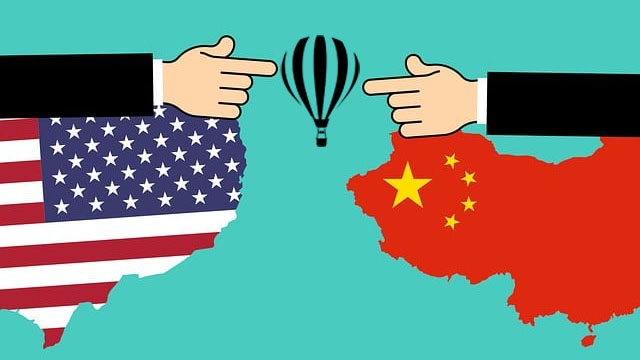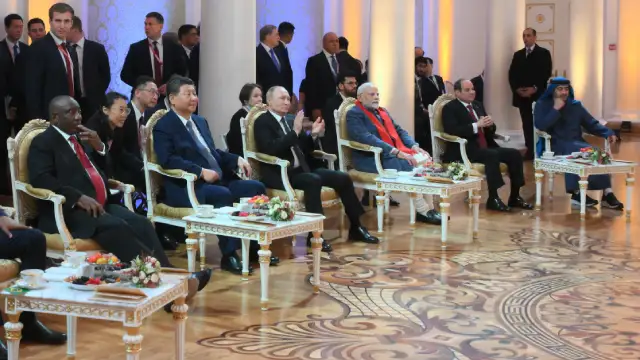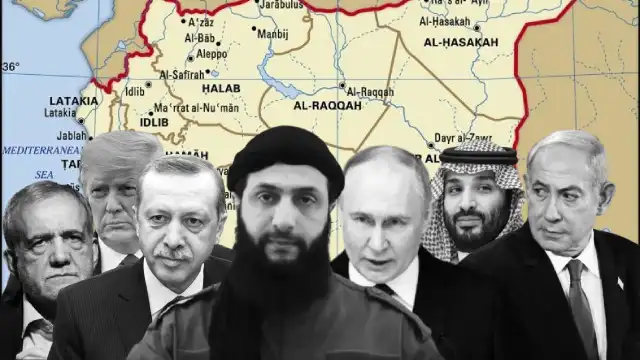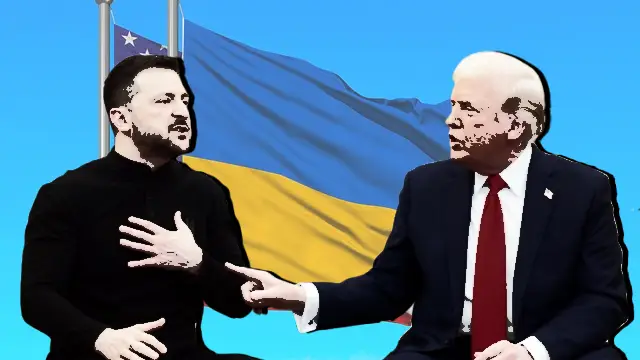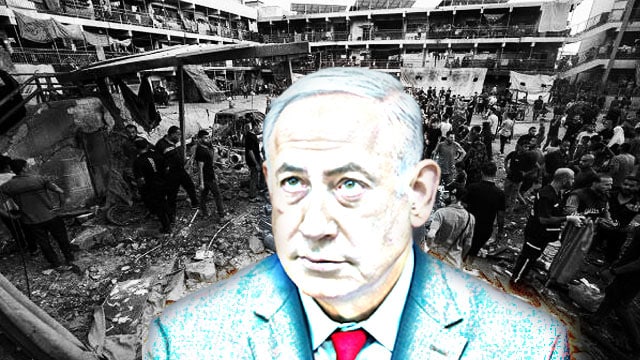Finally, there is a peace deal on the table for Gaza. And it has been proposed by the Americans. Not Israel, which is a party to the conflict. The Gaza peace deal raises a lot of questions rather than answering others. It exhibits the global pressure on the US to stop Israel, its waning global influence—leading to isolation of Israel—and the overall domestic political compulsions.
The Gaza peace deal advocates a three-pronged approach to resolving the ongoing humanitarian crisis in the entrapped strip.
Firstly, the Israeli forces will enter a six-week ceasefire and withdraw from the populated areas of Rafah.
Secondly, humanitarian aid will be allowed to flow into Gaza from Egypt through Rafah and there can be some hostage exchanges between the Israelis and Palestinians.
Finally, there will be a “permanent cessation of hostilities” in Gaza.
Several prominent personalities, from the United Nations Secretary-General Antonio Guterres to British Foreign Secretary David Cameron, welcomed America’s Gaza peace deal.
US President Joe Biden has exhibited his confidence that his Gaza peace deal will bring permanent peace in the region, albeit with Israeli interests at the forefront.
Mr Biden and Lord Cameron have put the onus on Hamas, saying that if the group wants peace it must accept the ceasefire deal. However, they haven’t placed similar conditions on Israel although it’s its consistent violation of international laws, war crimes and macabre atrocities that have brought Gaza to the centre of the international community’s attention.
According to the BBC, a Hamas official said that the organisation is going to “deal positively and constructively” if the Israeli side keeps up its commitment.
However, that condition, of Tel Aviv abiding by a treaty, raises a big question over the feasibility of the Gaza peace deal.
While the US talks about a permanent cessation of hostilities, Israeli officials have publicly stated the contrary as the objective behind its seven-month-long invasion of Gaza, where it’s accused of committing genocide.
Prime Minister Benjamin Netanyahu has claimed that his government will continue the war until its objectives are met, which is the total elimination of Hamas’s military and political prowess.
His government has killed 36,284 people in Gaza since October. At least 32% of the victims, 7,797, were children. All this has been done under the guise of combatting Hamas. Now can Mr Netanyahu, abiding the diktat of the White House, do a u-turn?
This is where one can see a contradiction in Mr Netanyahu’s stand.
While on Friday his government promoted the Gaza peace deal, on Saturday, Mr Netanyahu told the press that the conditions of the war haven’t changed for Tel Aviv, which means the attacks on Rafah will continue.
Is this acrobatic stunt an outcome of domestic political turmoil?
Mr Biden’s Gaza peace deal has given rise to a sharp division within Israel that has emerged even in Mr Netanyahu’s ruling coalition/
Mr Netanyahu’s coalition partners, far-right Zionists Finance Minister Bezalel Smotrich and National Security Minister Itamar Ben-Gvir have threatened to pull out of support if he goes ahead with Mr Biden’s Gaza peace deal with Hamas.
Mr Smotrich and Mr Ben-Gvir demand a complete annihilation of Hamas, which means prolonging the war and killing thousands of other civilians.
Surprisingly, the Opposition’s Yair Lapid has promised to support the government if Mr Netanyahu proceeds with the Gaza peace deal.
However, Mr Netanyahu remains committed to Mr Smotrich and Mr Ben-Gvir, as well as the far-right vote bank of his Likud Party, by assuring them that his government’s war against the people of Gaza won’t end soon.
Mr Netanyahu is reluctant to accept Mr Biden’s Gaza peace deal unconditionally. In this case, it raises a question. Why did Mr Biden propose the pact when Israel is not going to accept it?
It seems the growing isolation of Israel in the global diplomatic arena has forced Mr Biden to introduce a peace pact in haste.
In the last few months of Israel’s Gaza invasion, Latin American countries have intensified their anti-Israel stance.
Last week Brazil withdrew its envoy from Israel after months of tussle.
Earlier, Belize and Bolivia severed ties with Israel, while Chile, Colombia and Honduras recalled their envoys.
Since 2009, Venezuela hasn’t recognised Israel and Cuba has had no relations with the Zionist entity since the 1970s.
The anger against Israel reached such a peak in Latin America that its embassy was set ablaze by protesters in Mexico.
Even European countries have started opposing the ongoing genocide by recognising the statehood of Palestine. Ireland, Norway, and Spain became European Union countries that recognised Palestine as an independent state.
The pursuit of a warrant against Mr Netanyahu and his colleagues at the International Criminal Court (ICC) for their complicity in the Gaza genocide has panicked not just Tel Aviv but also Washington DC.
Many American politicians were seen opposing the proposal for ICC warrants against Mr Netanyahu and others, even though the US or Israel doesn’t recognise the ICC. However, the US welcomed a similar warrant against Russian President Vladimir Putin in 2023.
In the meantime, Israel and the US have been facing military resistance as well. From Hezbollah rockets from Lebanon to attacks on ships linked to it in the Red Sea, the Israelis are facing an all-out attack from the Axis of Resistance led by Iran.
Moreover, Iran also launched its maiden missile strike on Israel in April. It exposed Israel’s weakness.
On Friday, May 31st, the Houthis of Yemen claimed they had hit the US aircraft carrier, Eisenhower, in the Red Sea to avenge a US-British attack that killed 16 and injured 41 civilians. This is a serious jolt to the US quest for regional hegemony.
In the meantime, the International Court of Justice (ICJ) voted 13 to two in May that Israel must, “Immediately halt its military offensive, and any other action in the Rafah Governorate, which may inflict on the Palestinian group in Gaza conditions of life that could bring about its physical destruction in whole or in part.”
Amid the global outrage over the Israeli attacks on Rafah’s refugee camps, the visuals of a decapitated baby and other atrocities, the Gaza peace deal works like a subterfuge for Mr Biden and Mr Netanyahu.
While the Gaza peace deal provides an opportunity for Mr Biden and the US-led collective West to blame Hamas for prolonging the conflict in both ways—if Hamas agrees to it, Israel will delay its implementation and if it rejects the deal, it will be blamed for it.
Even though Hamas has called Mr Biden’s Gaza peace deal a positive one, it’s to be seen whether Mr Netanyahu is going to use it as bait or a desperate bid to escape international isolation.
Tanmoy Ibrahim is a journalist who writes extensively on geopolitics and political economy. During his two-decade-long career, he has written extensively on the economic aspects behind the rise of the ultra-right forces and communalism in India. A life-long student of the dynamic praxis of geopolitics, he emphasises the need for a multipolar world with multilateral ties for a peaceful future for all.


